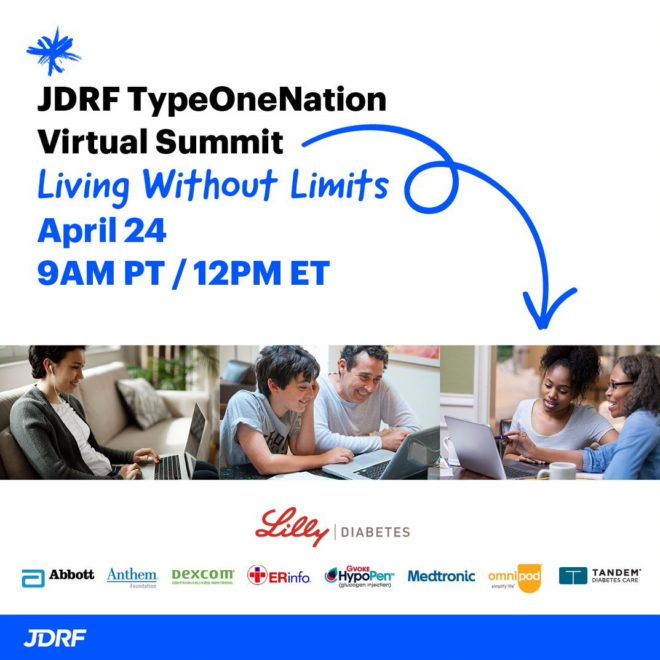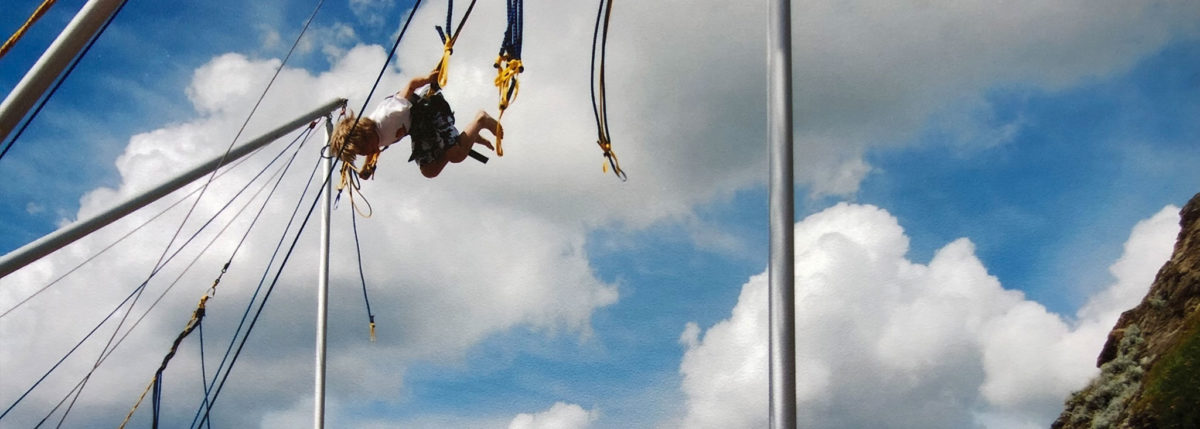Dear Parents of Children with T1D: You’re Stronger Than You Know
“Trust your instincts. You’re stronger than you know.” These words, offered by my first pediatrician just before I left the hospital with my newborn son, sustained me many times when my own inner strength was faltering. But now, the years of trying to fumble my way through managing my second son’s type 1 diabetes (T1D) have taken their toll, and it feels like I’ve left any vestige of strength in the rear-view mirror.
I started off well enough. I trusted my instincts when I recognized the signs of type 1 diabetes in my son and diagnosed him in our first-floor powder room. I knew enough about this disease to be terrified by the diagnosis. My brother died of T1D when he was 8 years old and my sister has been living with it since she was 16.
Any sense of strength and confidence I carried as a young mother evaporated with the reality that my 5-year-old son had T1D. Fear, fatigue and feelings of failure at my inability to control his blood sugars gradually filled the void created when strength and confidence moved out. The fear was at times overwhelming, as unanswerable questions about how I was to keep him safe poured in faster than hurricane rains breaching the banks of a dammed river.
I carried fear with me like a suit of heavy armor, as if the stress of my new responsibilities were soldered to my body. In the early years, my son was too young to make insulin dosing decisions on his own. Those decisions fell to me. My fears only fueled the shame I carried when my efforts at controlling my son’s blood sugars failed. Trying to control diabetes felt like trying to solve a Rubik’s cube, except every failure also reminded me I had put my son at risk.
In those years, the A1c felt like my report card. I couldn’t escape feeling like it was a school exam measuring how well I understood the effect of T1D on my son’s body and whether or not I could manage the complexity of it. Unwittingly my sense of failure or success at my “performance” perpetuated my own sense of shame. Fatigue from the constant vigilance by day and the sleep interruptions most nights only made the fear and failure more difficult to bear.
Was it even possible for this battle-worn mama to still be stronger than she knew? I no longer felt very strong at all.
Redefining Strong
I yearn to be stronger than my child’s disease. I imagine you do too. We parents of a young child with T1D bear significant responsibility in managing our child’s care, and that 24/7 vigilance often comes at the price of extreme exhaustion. Much of what we carry goes with the territory of trying to control such a complex disease. But some of the baggage is unnecessary; we thrust it on ourselves in our noble efforts to “get it all right.” Carrying this excess baggage isn’t healthy for us and doesn’t set a good example for our children to follow.
We often define our own strength based on our perception of our diabetes management skills, mistaking strength for being in control. But being strong doesn’t have to look like having it all together.
We need to redefine strong. We confuse strength with a life that unfurls with great ease and few disappointments. Could true strength be found in a deep satisfaction that we’re loving well and doing the best we can? Perhaps we mine our greatest strength when we meet unexpected challenges head-on, and despite the rising fear and fatigue, discover we are still standing.
True strength begins with acknowledging we won’t get it all right. Some of our deep fears will be realized and not all of our decisions will be correct. But we can choose to carry on without heaping judgment or accusations on ourselves. Only when we lay down the illusion that we are in control will we find freedom from feelings of failure, guilt and shame.
True strength is also measured by the attitudes we carry with us every day—including the days of dripping fatigue and less-than-desirable A1c reports. We have a tendency to value our “successes” in diabetes management more highly than the offering of our best self to our child despite our failures and doubts. Measuring the way we move through the storms of life with grace and courage rather than judgment and a sense of failure is the true measure of strength.
There’s a lot at stake here. I don’t want my son’s illness to control how I feel about myself any more than I want it to control how he feels about himself. I need to recognize and applaud my own inner strength if I want my son to press into his.
I used to think being strong meant having all of life’s uncertainties go according to my carefully orchestrated plans. I’m beginning to define strong differently. Strong means the ability to carry on even when things don’t go to plan. Strong means the ability to move through life without grumbling or complaining when we have every reason to be discontent. Strong means not expecting life will turn out my way, and yet being able to reflect boldness and courage amidst the disappointing times.
Real strength lies not in managing to live a well-ordered life, avoiding all the swirling chaos, but in discovering beauty amidst the disorder.
You too are stronger than you know.






